The Best Appointment Software Online: Streamlining Your Scheduling Process

Introduction
Appointment scheduling software has revolutionized the way businesses and healthcare providers manage their schedules. With the ability to automate the booking process, these tools are a game-changer for time management, allowing professionals to dedicate more energy to their core responsibilities. Small businesses can leverage these scheduling solutions to avoid the tedium of manual appointment setting, improving operational efficiency and freeing up valuable time for growth and customer service.
In the healthcare sector, patient expectations have shifted towards convenience and transparency, with a staggering 89% of patients valuing the ability to book appointments online or through mobile tools. Platforms like Artera ScheduleCare are essential for meeting these demands, enhancing patient satisfaction, and streamlining front office operations. The integration of appointment confirmation texts has also become a standard practice to reduce no-shows and ensure a seamless user experience.
The adoption of appointment scheduling software is not just a trend but a strategic move to foster customer convenience, improve access to services, and ensure a more efficient and patient-centric approach. Businesses and healthcare providers alike are witnessing a digital transformation that promises operational excellence.
Key Features of Appointment Scheduling Software
Free scheduling software and apps are transforming the way organizations and healthcare providers manage their calendars. With the ability to automate the booking process, these tools are a game-changer for time management, allowing professionals to dedicate more energy to their core responsibilities.
For small enterprises, utilizing these time management solutions implies their teams can evade the monotony of manual meeting arrangement. As highlighted by Small Business Trends, businesses utilizing online scheduling have seen significant improvements in operational efficiency. Automation minimizes errors and frees up valuable time, a boon for small companies looking to focus on growth and customer service.
The healthcare sector is also experiencing a shift in patient expectations. Today’s patients prioritize convenience and transparency in their healthcare interactions, akin to services they receive in other industries. A survey indicates a staggering 89% of patients value the ability to schedule their meetings anytime and anywhere through online or mobile tools. Platforms like Artera ScheduleCare are essential for meeting these demands, enhancing patient satisfaction, and streamlining front office operations.
Furthermore, with the increasing significance of timely reminders, the utilization of confirmation texts for scheduling has become a standard procedure. These reminders are a simple yet effective way to reduce no-shows and keep schedules running smoothly.
The integration of such technologies is not just a trend but a strategic move to foster customer convenience, improve access to services, and ensure a seamless user experience. Consequently, companies and healthcare professionals are observing a digital revolution that guarantees a more effective and patient-focused method to arranging meetings.
Benefits of Using Appointment Scheduling Software
Utilizing the potential of appointment scheduling software unlocks a range of benefits for enterprises, big and small. By automating the booking process, these tools save precious time that would otherwise be spent juggling calendars and managing schedules. This efficiency boost not only streamlines operations but also allows teams to concentrate on the heart of their business rather than being bogged down by administrative tasks.
Consider the case of Somerset Academies of Texas, where the introduction of integrated software solutions brought order to a previously chaotic arrangement of distinct tools. This consolidation led to smoother operations and improved oversight, demonstrating the organizational benefits of such systems in an educational context.
Similarly, healthcare providers like Creekside Family Practice have capitalized on the convenience of online scheduling. Patients are granted the autonomy to choose their appointment times, cutting down on phone tag and simplifying access to care—a win-win for both the practice and its clientele.
Paralleling these feelings, insights from Small Business Trends emphasize the time-saving element of these mechanisms, which can be especially transformative for small enterprises seeking to improve customer experience and operational effectiveness.
Enhancing customer convenience is another convincing rationale for enterprises to embrace online reservation platforms. The freedom for clients to schedule meetings at their convenience, without the limitations of business hours, encourages a more customer-focused approach, guaranteeing their continued patronage.
Furthermore, in a time where communication is essential, the top systems for setting up meetings come equipped with integrated reminder functions. These gentle nudges help reduce no-shows and keep schedules running smoothly, exemplifying how technology can enhance the reliability of service delivery.
In essence, whether it’s through enhancing internal workflows or elevating the customer experience, the strategic use of software for managing and organizing meetings is a crucial step towards operational excellence.
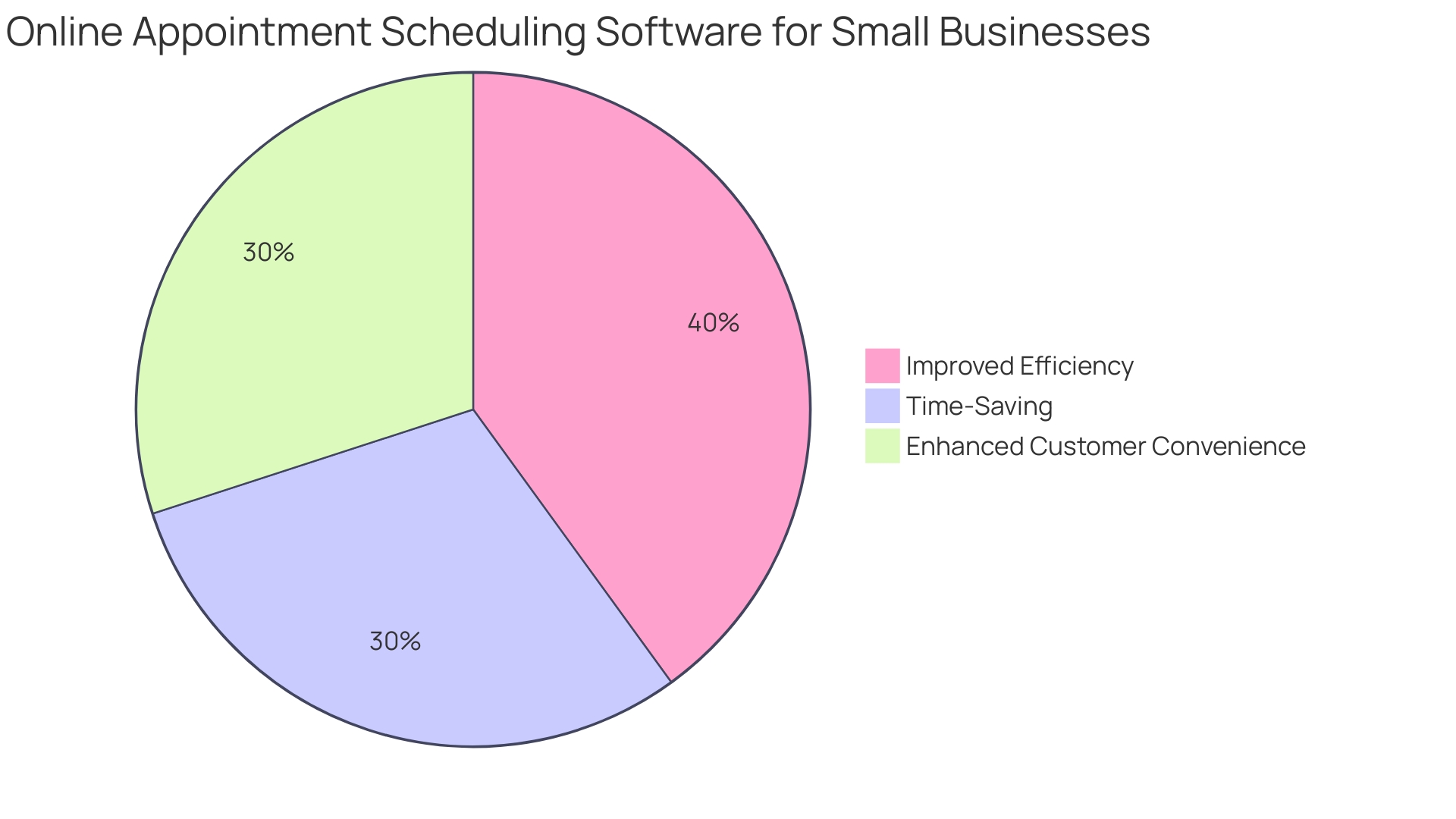
Top Appointment Scheduling Software Options
Examining the bustling market of software for organizing meetings, it’s evident that small enterprises have a wealth of options designed to streamline their operations. With an emphasis on efficiency and customer experience, these tools offer a transformative approach to managing bookings. By automating the scheduling process, they drastically cut down the time companies spend on administrative tasks, allowing them to focus more on the heart of their business activities.
For their patients, Creekside Family Practice in Cypress, Texas, utilized healow Open Access to provide a simple and convenient way to schedule their visits. This kind of innovation illustrates the rising patient expectations for convenience and a frictionless experience, much like they would encounter when booking flights or reserving a restaurant table. In fact, a staggering 89% of patients now consider the ability to book appointments anytime via online or mobile tools as essential.
For those interested in embracing such technologies, usability takes precedence. A user-friendly interface, coupled with features like efficient time tracking and employee availability management, can make a significant difference. On the scalability front, it’s crucial for the software to expand in parallel with your enterprise and integrate seamlessly with existing systems.
Diving into the rich variety of available software, it’s necessary to navigate through the features and benefits each offers. For example, Calendly, which started with a simple MVP and rapidly grew to serve a thousand customers in its first six months, showcases the potential for rapid scaling and user adoption.
The market for productivity software, including tools for managing appointments, is constantly expanding, with options available as on-premises software or cloud-based services. These applications are crucial to the operation of organizations, guaranteeing that administrative and collaborative tasks are managed with enhanced efficiency. With the appropriate time management solution, businesses can fulfill and surpass the modern consumer’s expectations, having a significant effect on their operational success.
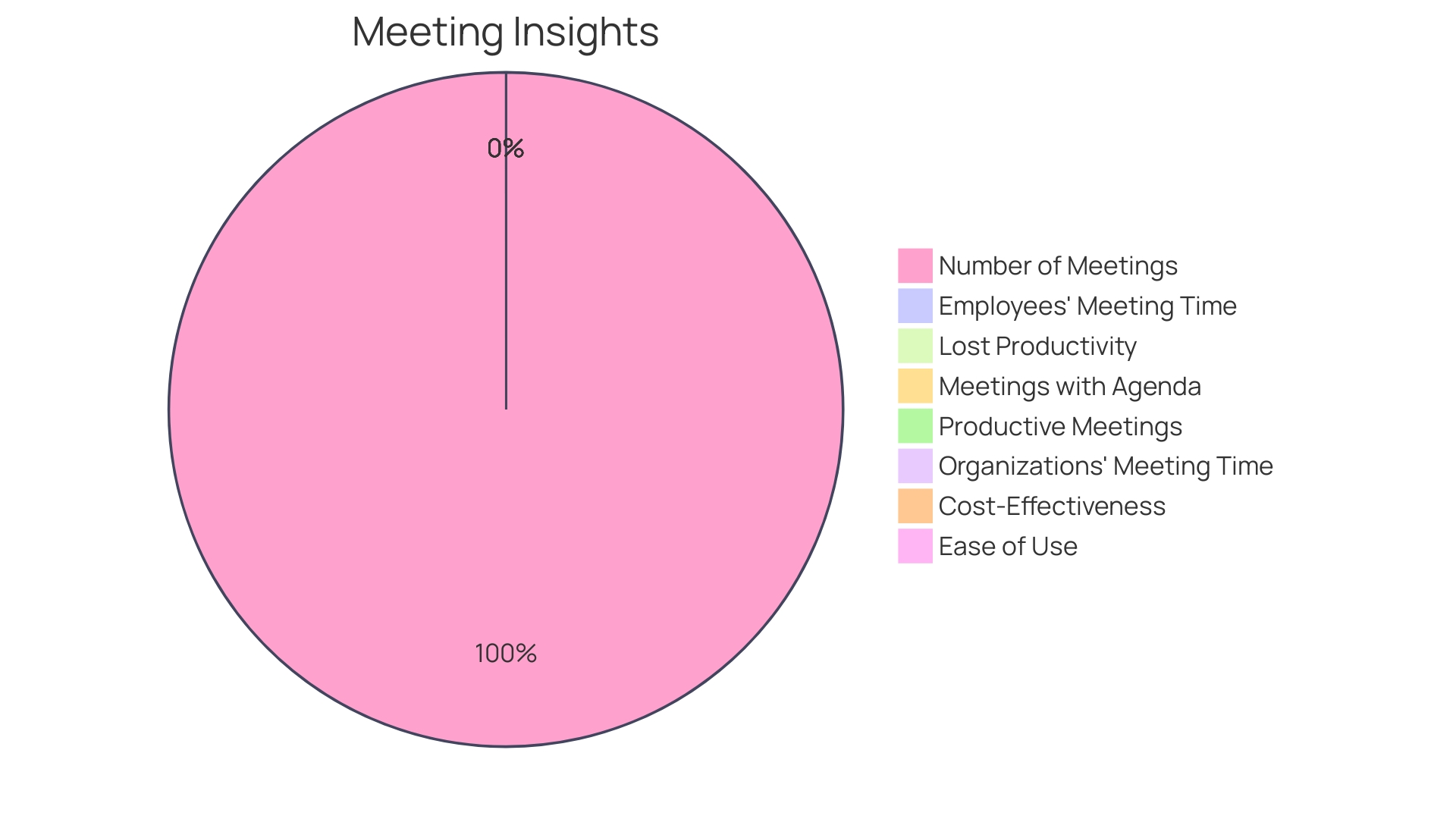
Calendly – Popular Appointment Scheduling App
Calendly, recognized for its intuitive interface and versatile appointment management capabilities, has established itself as a user favorite. But did you know that its journey began in 2013 when its founder, Tope Awotona, invested his life savings to bring his vision to life? The initial development was strategically outsourced to a Ukrainian agency to craft a Minimum Viable Product (MVP), leading to an early adoption by BrightBytes, even before its official release. Within six months of its launch, Calendly had already captured a thousand users, and generously continued free service access for over a year.
In the digital world of calendar management, open-source platforms like Cal.com are gaining popularity. Pioneering the movement of open calendar management, Cal.com offers transparency and customization, allowing users and developers to actively engage with the product’s evolution. It’s a community-driven platform where one can even peek into the codebase and contribute to its development in real-time.
The mobile booking space has also seen significant enhancements. Cal.com, keeping up with the trends, now facilitates phone-based booking, a boon for those who prefer phone numbers over emails for their booking confirmations. On the other hand, Calendly has stayed dedicated to offering a smooth appointment arrangement experience, which has struck a chord with a diverse customer base, including NGOs, enterprises, and freelancers alike.
Selecting the appropriate appointment management application is about discovering a balance between ease of use, customization choices, and the type of involvement you desire from the platform. With Cal.com’s developer-friendly ecosystem and Calendly’s established user base and ease of use, both offer compelling options depending on your calendar requirements. Whether you prioritize open-source collaboration or a simple, dependable service, there’s a platform that fits the bill.
YouCanBookMe – Customizable Booking Software
With a customizable interface, YouCanBookMe offers a dynamic solution that adapts to your unique business needs. This flexibility has been game-changing for different sectors, particularly for Benefit Cosmetics, which transformed its appointment arrangement to offer a smooth experience for beauty enthusiasts. Clients can now effortlessly adjust their bookings through WhatsApp, ensuring convenience and maintaining that personal touch which is crucial in the beauty sector. Likewise, a Hotel Management company in the US utilized the potential of digital tools such as Google Analytics and Facebook Pixel to enhance their booking strategies with remarkable achievements, highlighting the significance of a customized method in online reservation. Services, another standout in the booking software domain, caters to service providers seeking to streamline operations and foster growth, demonstrating the broad application and benefits of such systems. These case studies highlight the transformative potential of software for managing appointments, providing a strategic edge in delivering personalized and efficient customer experiences.
Setmore – Free Appointment Scheduling Software
Setmore is more than just a tool for managing bookings; it’s a comprehensive platform designed to streamline the intricate process of organizing and coordinating meetings. It’s an essential resource for professionals looking to enhance their operational efficiency, particularly when juggling multiple projects and appointments. With Setmore, you can effortlessly integrate online booking capabilities into your daily operations, automate reminders to reduce no-shows, and sync with widely-used calendars to keep track of your commitments seamlessly.
One of the remarkable characteristics of Setmore is its capacity to automate the arrangement process, which is a game-changer for small enterprises. According to Small Enterprise Trends, such automation saves valuable time, allowing entrepreneurs and their teams to focus on core activities rather than manual scheduling. Additionally, the ability to handle scheduling digitally is not only convenient; it has become an essential element for contemporary enterprises. A recent benchmark report from Kyruus highlighted that nearly 80% of consumers would schedule care through a health plan website if possible, with a significant portion of millennials preferring to book their appointments online.
Adding to the software’s appeal is the connectivity it provides. For instance, at the Department of Electronic & Electrical Engineering, a personal tutor scheme utilized an outdated scheduling approach before the department coordinator implemented a more efficient method. Similarly, Austin Morgenroth at Somerset Academies of Texas recognized the need for integration across various operational platforms to ensure nothing falls through the cracks. Setmore’s integration capabilities could be the solution to unifying disparate systems, as evidenced by the success stories of companies that have embraced technology to enhance their operations.
In the context of healthcare, Inovalon’s Agency Management SaaS solution exemplifies how intuitive technology can simplify the management of external staff, which is often a time-consuming task for nurse managers and schedulers. By reducing administrative inefficiencies, healthcare providers can manage staffing more effectively. Setmore aligns with this vision, offering a tool that can mitigate administrative burdens and contribute to a well-coordinated operational environment.
With Setmore, you have a dependable platform that caters not only to the administrative side of scheduling but also to the strategic aspect of managing an enterprise. Whether you’re looking to get a flying start, expand your enterprise, or manage everything from one platform, Setmore provides the versatility needed to adapt and thrive in today’s fast-paced service industry.
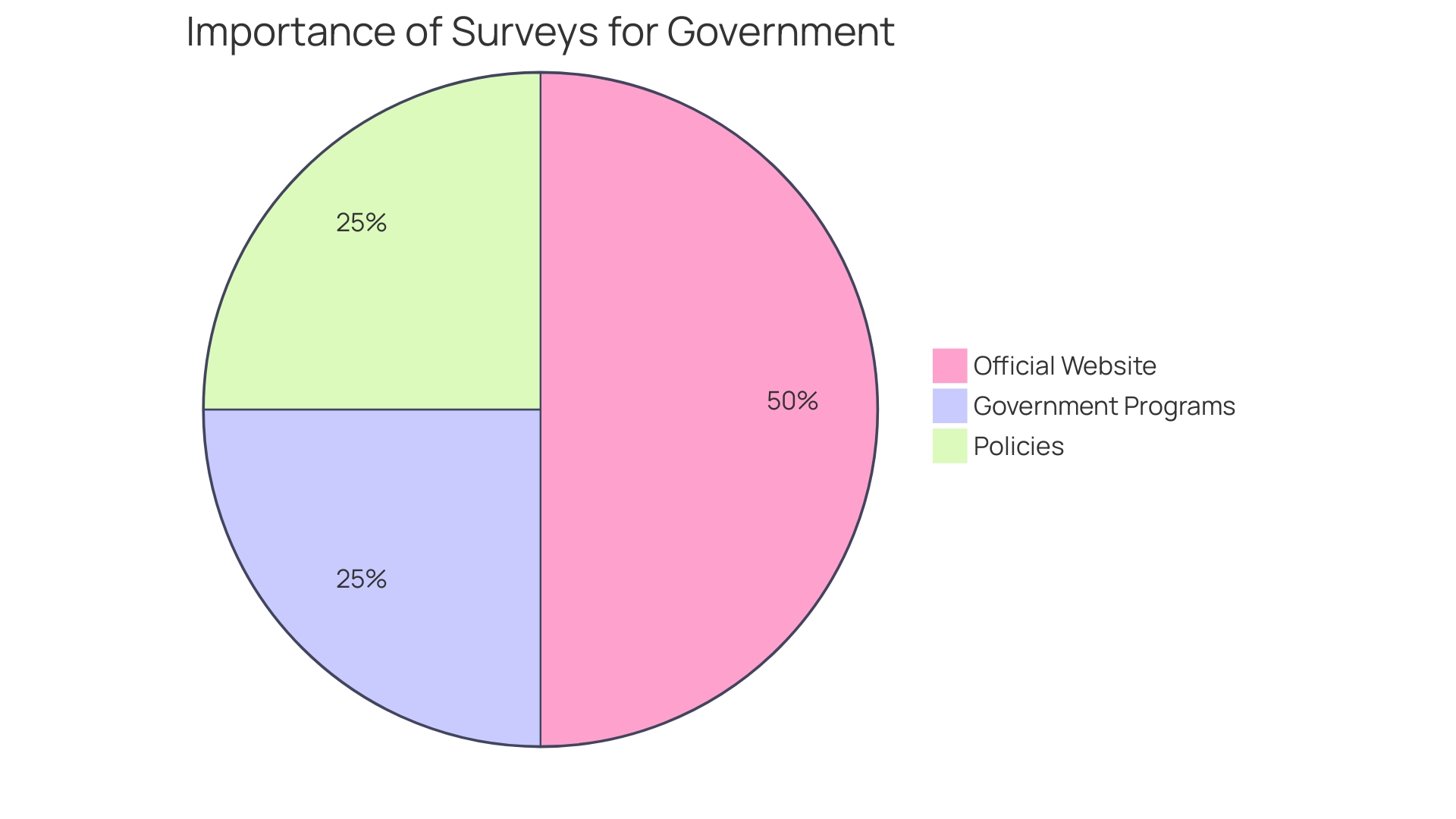
SimplyBook.me – Global Appointment Scheduling Solution
SimplyBook. Me is a flexible worldwide solution for managing bookings that easily caters to the needs of companies of any scale. The platform not only simplifies scheduling for customers but also streamlines the experience for staff, contributing to overall efficiency.
With the increase of online appointment arrangement, companies like SimplyBook. Me are transforming the way enterprises function. By automating the scheduling process, small enterprises can save valuable time that was previously spent on manual scheduling. This change enables owners and their teams to focus on their core activities without being overwhelmed by administrative tasks.
Furthermore, software like SimplyBook.me offers different plans that cater to various stages of company expansion—from startups looking for a strong launch to established companies aiming to manage their operations more effectively. The simplicity of establishing an online reservation platform implies that even without any coding background, enterprises can personalize and completely automate their timetable requirements with a strategy that suits ideally.
The success of platforms like 3Bookers, which was built on the idea of offering an affordable, intuitive, and robust platform for managing appointments, echoes the demand for such services. Small enterprises profit significantly from these mechanisms, which are created to be budget-friendly and easy to use, ultimately enhancing the customer experience.
Statistic reports indicate that collaboration software markets, which include solutions for organizing tasks, are becoming increasingly significant. With key players like Zoom and Slack leading the way, it’s evident that the future of organizational operations lies in efficient, scalable systems. Additionally, the extensive utilization of Microsoft products, with an astounding 67% of small enterprises relying on them, highlights the significance of integrating widely-known software with new solutions for maintaining continuity and user-friendly experience for individuals worldwide.
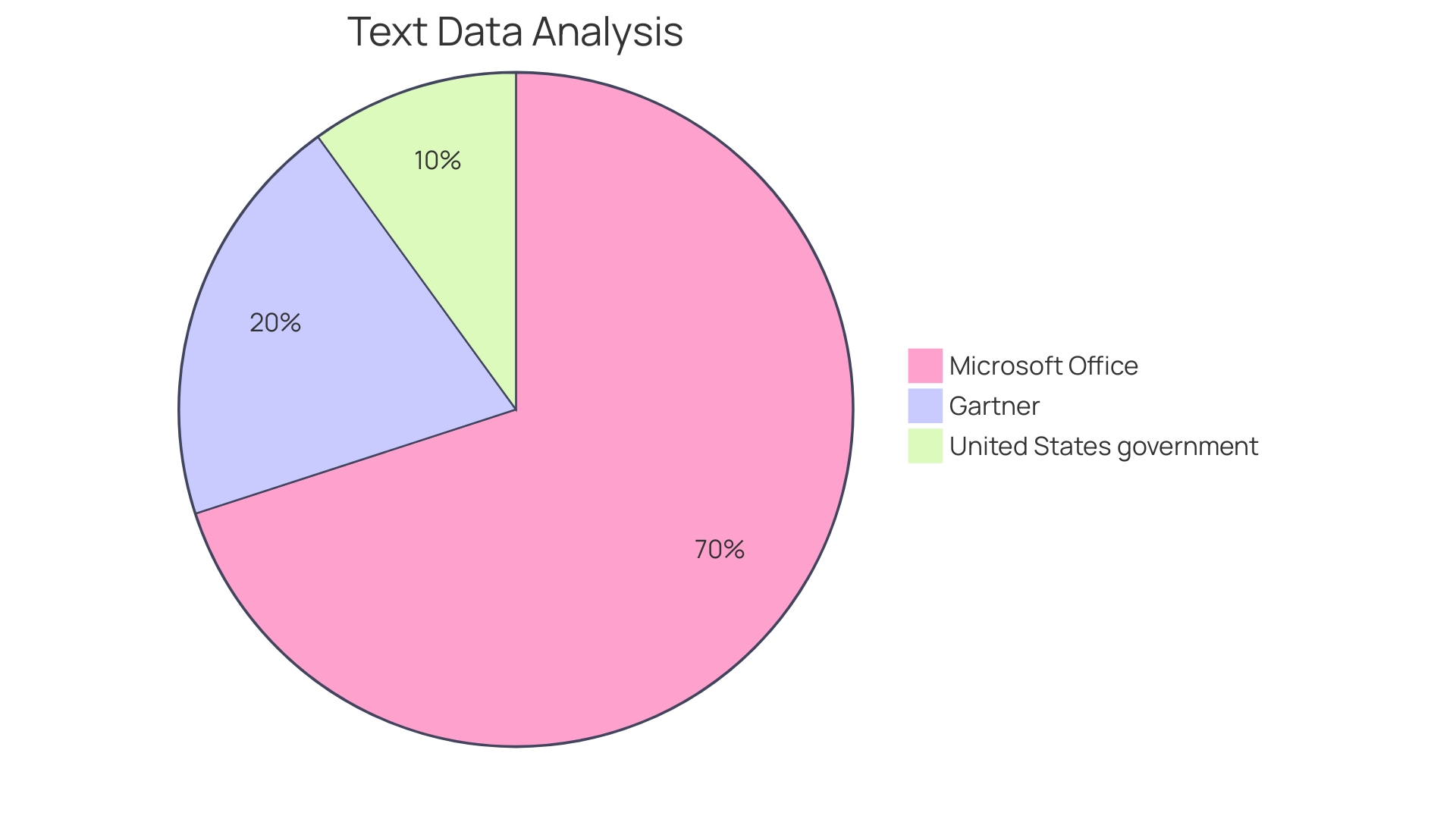
Doodle – Scheduling Tool for Group Meetings
Doodle excels as a platform for arranging appointments, particularly in regards to coordinating group gatherings. Its capability to harmonize availability across multiple participants is invaluable in today’s busy world. With the stark reality that the likelihood of successfully coordinating a meeting plummets when more than five individuals are involved, this tool’s usefulness cannot be overstated. It combats the common scenario where a significant portion of employees, 83.13% to be exact, spend a substantial slice of their workweek—a third, in fact—in meetings. Considering that an estimated $37 billion is lost annually to unproductive meetings, Doodle’s role in ensuring that the 30% of meetings which are productive can happen efficiently is crucial. It’s a solution that directly tackles the challenge of optimizing time management within organizations, where on average, 15% of the collective schedule is dedicated to meetings. By enabling a more efficient method for organizing, tools like Doodle not only simplify the process of identifying the optimal time for everyone but also contribute to a more strategic and valuable utilization of time within the workplace.
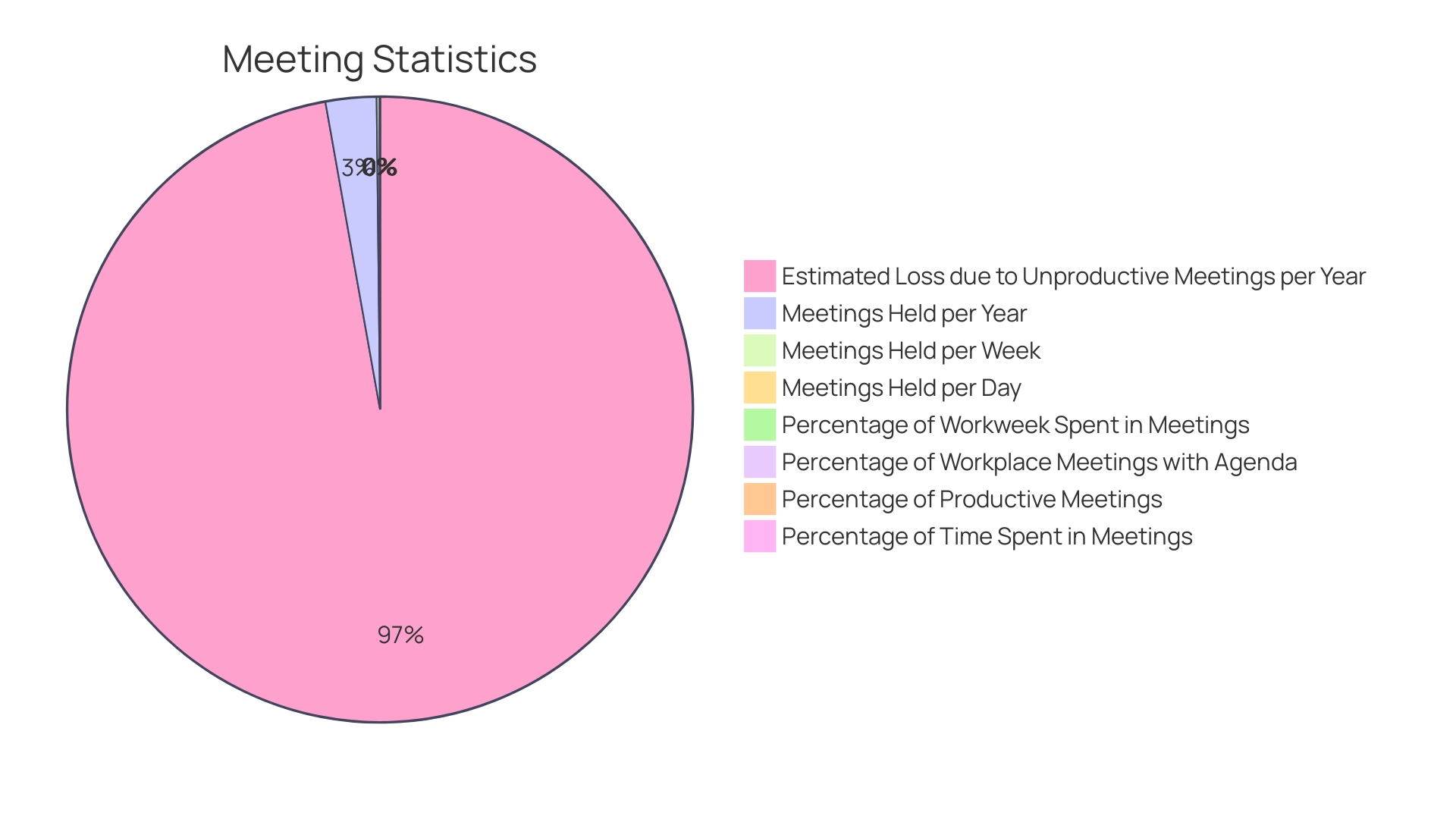
Acuity Scheduling – Ease of Use and Customization
With the abundance of calendar options available, it’s easy to feel overwhelmed when trying to select the ideal fit for your organizational requirements. Acuity Scheduling stands out in this crowded space with its user-friendly interface paired with a wealth of customization features. It’s not just about penciling in appointments; Acuity gives you the power to customize your system to reflect your brand’s personality and operational style. Whether you’re a solo entrepreneur or a part of a larger entity, this tool adapts to your specific requirements, ensuring that your organization operates smoothly. In a digital landscape where mobile user experience is paramount, Acuity Scheduling shines. It’s designed to work seamlessly on mobile devices, a must-have feature considering that over 50% of users may dismiss a brand due to poor mobile site design. Fast load times and easy navigation are key, with data showing mobile sites that load in two seconds or less boast a 15% higher conversion rate. Acuity Scheduling understands this, providing a sleek mobile experience that can help you capture and retain that ever-growing mobile audience.
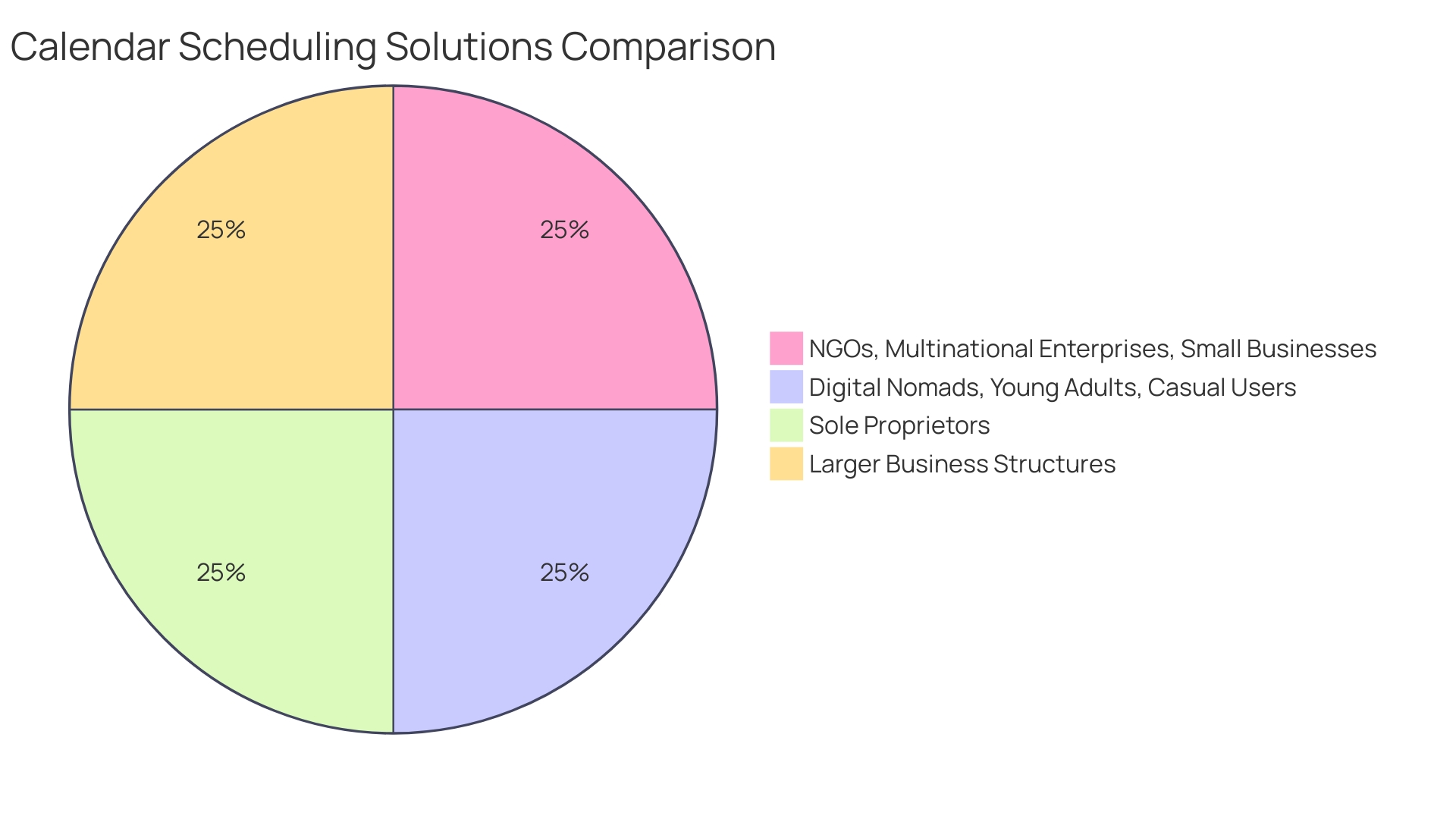
Square Appointments – Best Mobile Booking App with POS
Square Appointments is more than just a scheduling solution; it’s like having an assistant that keeps your calendar and cash register humming in harmony. For companies balancing appointments alongside sales transactions, this application ingeniously combines the two. It’s like the story of Andreea Haiduc, who found new opportunities in Hospitality through such interconnected systems, or Cosmin Herpuț’s experience of enhancing his sales team and acquiring new customers. The simplicity and effectiveness of Square, as reported by Small Business Trends, resonate with small and large enterprises alikeâeveryone from market stall vendors to big names like Starbucks. They’re all in on Square for its versatility and ease of use, without the burden of monthly fees. It’s the go-to app for those who want to save time on booking and focus on growing their enterprise, much like the top reasons service providers choose booking software like ServiceOS. And with the increasing significance of mobile apps in our everyday existence, emphasized by mobile app statistics, it’s evident that an integrated platform like Square is a wise selection for businesses seeking to stay ahead.
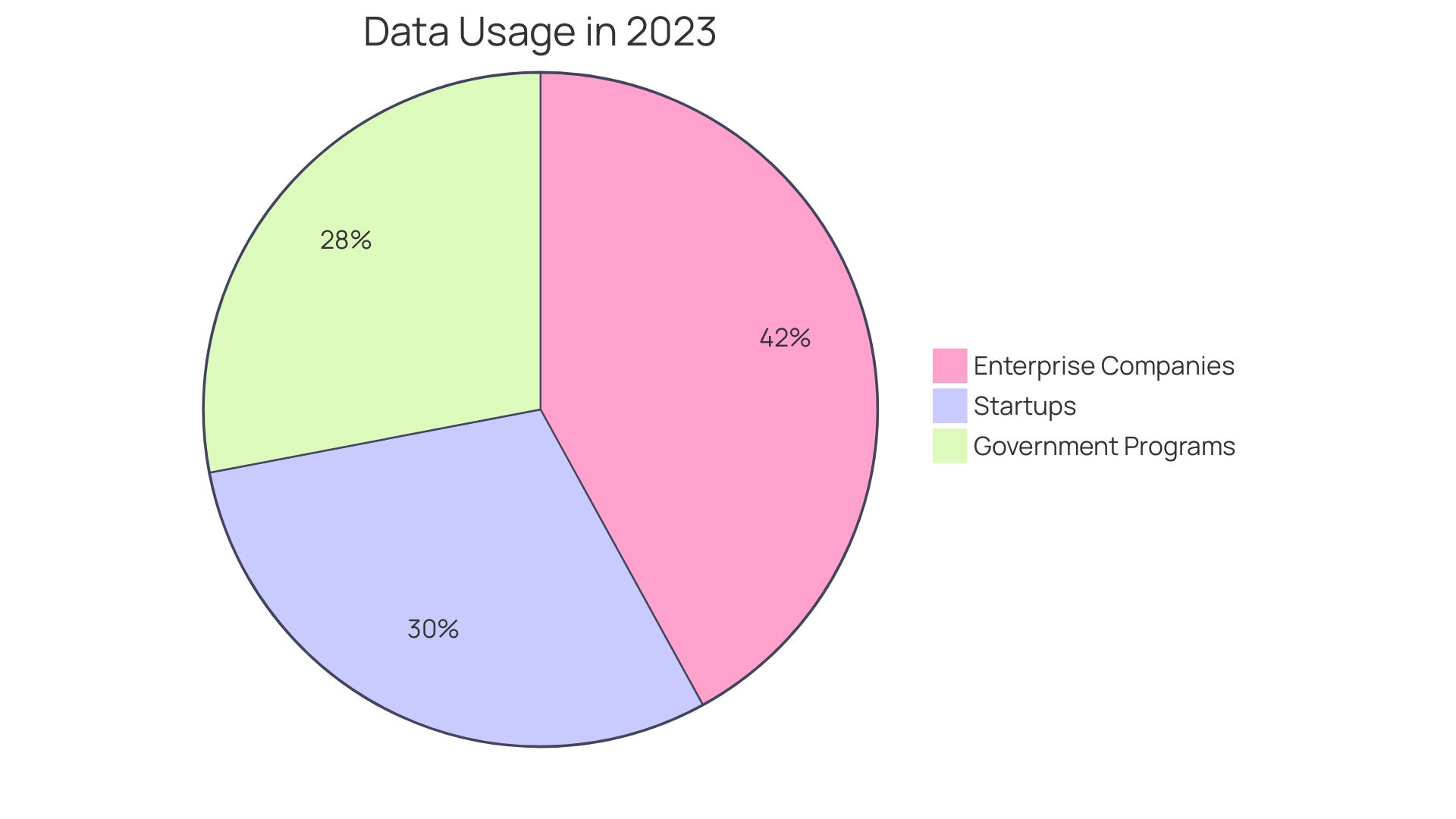
Essential Features to Look for in Appointment Software
Selecting the right appointment booking software is more than just a convenience; it’s a strategic decision that can streamline your operations and enhance the client experience. Here’s why:
Firstly, the sheer efficiency of automating your booking process is a game-changer. It replaces the tedium of manual scheduling with a smooth system that can significantly reduce errors and free up your team to focus on what they do best—serving your clients. According to Small Business Trends, this automation can be a real time-saver, particularly for small enterprises.
Moreover, your clients expect a booking experience that’s in line with the convenience they get elsewhere, like when snagging a flight or booking a table online. A whopping 89% of consumers surveyed want the option to book appointments at any time, not just during business hours, showing a clear preference for the accessibility that online and mobile tools provide.
The effect of these mechanisms isn’t just theoretical. Take the Somerset Academies of Texas, for example. Prior to implementing a more comprehensive software solution, they were managing a variety of different platforms, which resulted in inefficiencies and things slipping through the gaps. Streamlining the process with the right technology was key to their growth and ability to focus on providing excellent educational opportunities.
So, as you contemplate the multitude of apps for managing your schedule out thereâ20 of which were examined by Small Business Trendsâkeep in mind that the decision you make can significantly impact both your operational efficiency and your customer satisfaction.
Online Booking Capability
In the realm of service provision, the adaptation of digital solutions is becoming increasingly essential. For instance, Comwell Hotels underwent a transformation to revamp their two-decade-old management system, which was proving inefficient against modern event management needs. They prioritized specialized solutions, sustainability, and digitization, signaling a shift towards more innovative operational strategies.
Similarly, Small Business Trends highlighted the benefits of online appointment software, emphasizing its role in enhancing customer experience through operational streamlining. The software’s ability to automate the booking process saves valuable time, allowing businesses to focus on their core activities. The importance of these systems is further underscored by data suggesting that 80% of consumers prefer self-service online scheduling, as per a study by Wakefield Research for Kyruus.
The advantages of embracing online scheduling are numerous. First, there is the convenience it offers to customers who can schedule meetings from anywhere at any time, a feature particularly appreciated outside of regular business hours. This round-the-clock availability, along with a user-friendly interface, ensures that customers can effortlessly navigate services and book their sessions without any difficulty.
To back this up, a statement from Small Business Trends echoes the key benefits of these platforms: ‘Automates the reservation procedure, decreasing the time spent on arranging and rearranging meetings.’ Moreover, the incorporation of AI into these setups can tackle the intricacies of scheduling, particularly in industries like healthcare where factors such as numerous sites and service offerings come into action. AI can streamline these processes, ensuring a match between patient needs and provider availability without unnecessary human intervention.
In summary, online scheduling platforms are not only a convenience but a strategic instrument that can greatly improve operational efficiency and customer contentment. Incorporating such mechanisms into business operations aligns with the digital era’s demands, contributing to a growth-oriented and customer-centric business model.
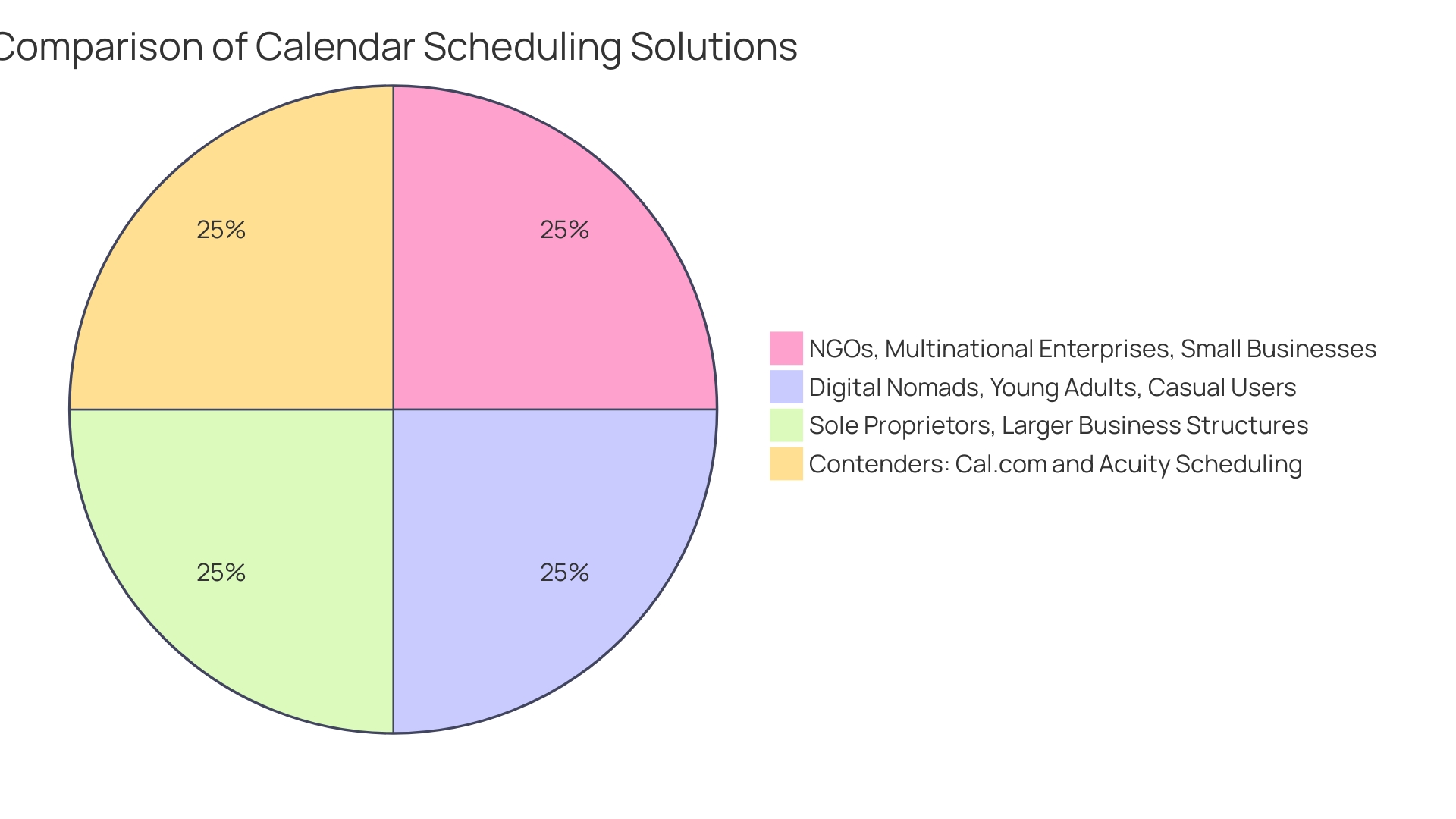
Automated Reminders and Notifications
The effectiveness of timely reminders in reducing missed schedules should not be underestimated. For instance, a compelling case study demonstrates that court date reminders can slash non appearance rates by an impressive 20-40%. This is not only applicable to legal arrangements; the healthcare industry also gains advantages from such mechanisms. Health organizations that make use of a No-Show Recovery Dashboard have discovered that rearranging missed meetings can result in a substantial retrieval of potential lost income. Actually, the data shows a distinct image: starting from confirmed bookings, the rescheduled absences constitute a significant portion of regained bookings and approximate overall revenue recaptured. This is especially beneficial for multi-practice health organizations, which can monitor no-shows and revenue recovery across their various locations.
Moreover, the adoption of automated reminders isn’t limited to large organizations. Centerpoint Health, a not-for-profit health center, utilizes such mechanisms to guarantee their community has accessible healthcare booking. By implementing digital solutions, like those offered by eClinicalWorks, they are able to send automated messages that include essential details such as date, time, and location, ensuring their services reach those who need them most.
The integration of technology into the reminder process has seen further advancements with Apple announcing new AI capabilities in its devices, which could potentially reshape how reminders are managed and delivered. As we move forward, the fusion of behavioral insights and technology continues to offer promising solutions to the age-old issue of missed appointments, making the reminder system not only more efficient but also more cost-effective in the long run.
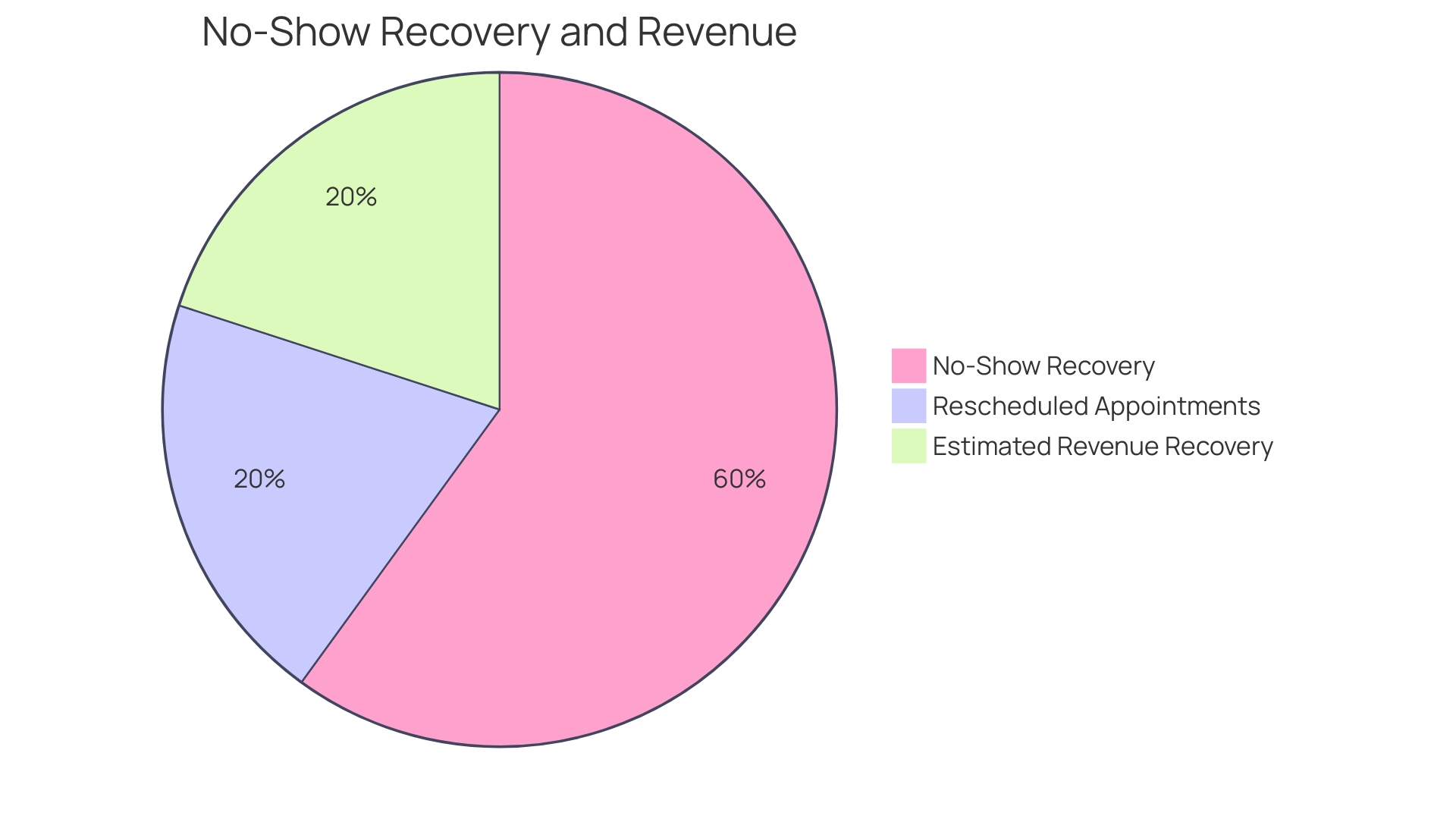
Calendar Integration and Synchronization
Harnessing the power of calendar integration and synchronization is like having a behind-the-scenes maestro conducting your schedule’s orchestra. Visualize this: your scheduled events and gatherings dancing in harmony with your current calendar. No more double-bookings or missed engagements, just a smooth, streamlined experience that keeps you on top of your game. It’s about making your calendar work smarter, not harder, for you. From the busy entrepreneur to the bustling corporate team, seamless calendar integration is the key to unlocking a more organized, efficient, and stress-free day.
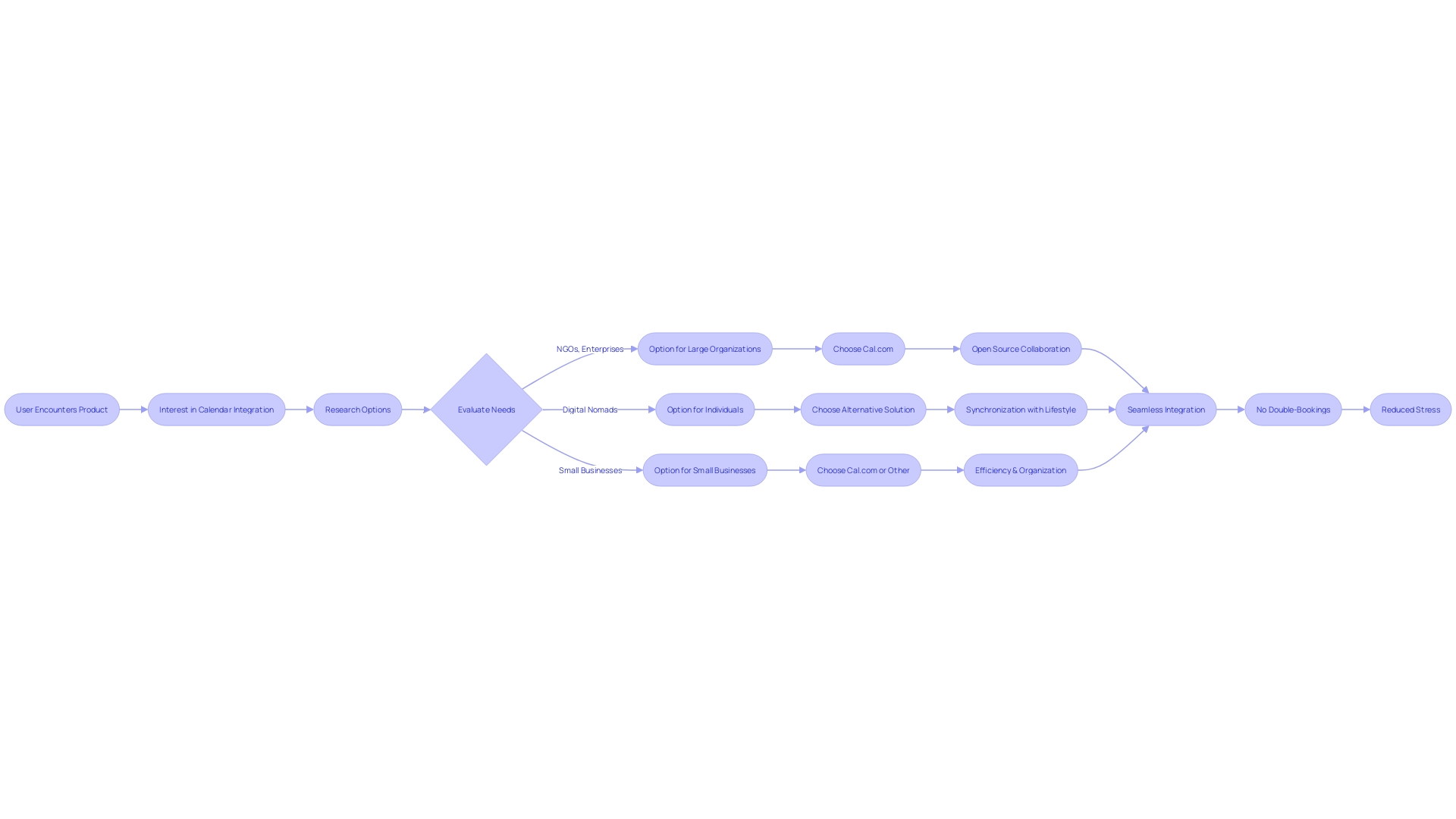
Customizable Appointment Settings
Having the flexibility to customize scheduling settings is like having a magic wand for your calendar. Picture the ability to determine the duration of each meeting, incorporate buffer periods to take a break between sessions, and manage your availability with just a few simple actions. It’s not just a fantasy; with the right booking software, it’s your new reality. It’s like giving your schedule a personal assistant, dedicated to making sure everything runs like clockwork. With statistics indicating that more than two-thirds of clients favor self-help alternatives, it is evident that providing them with the ability to schedule their own meetings can result in heightened contentment. Plus, with automated reminders, the days of no-shows can become a thing of the past. It’s all about creating a smooth experience for you and your clients, ensuring that everyone knows exactly when to connect and that no time is wasted.
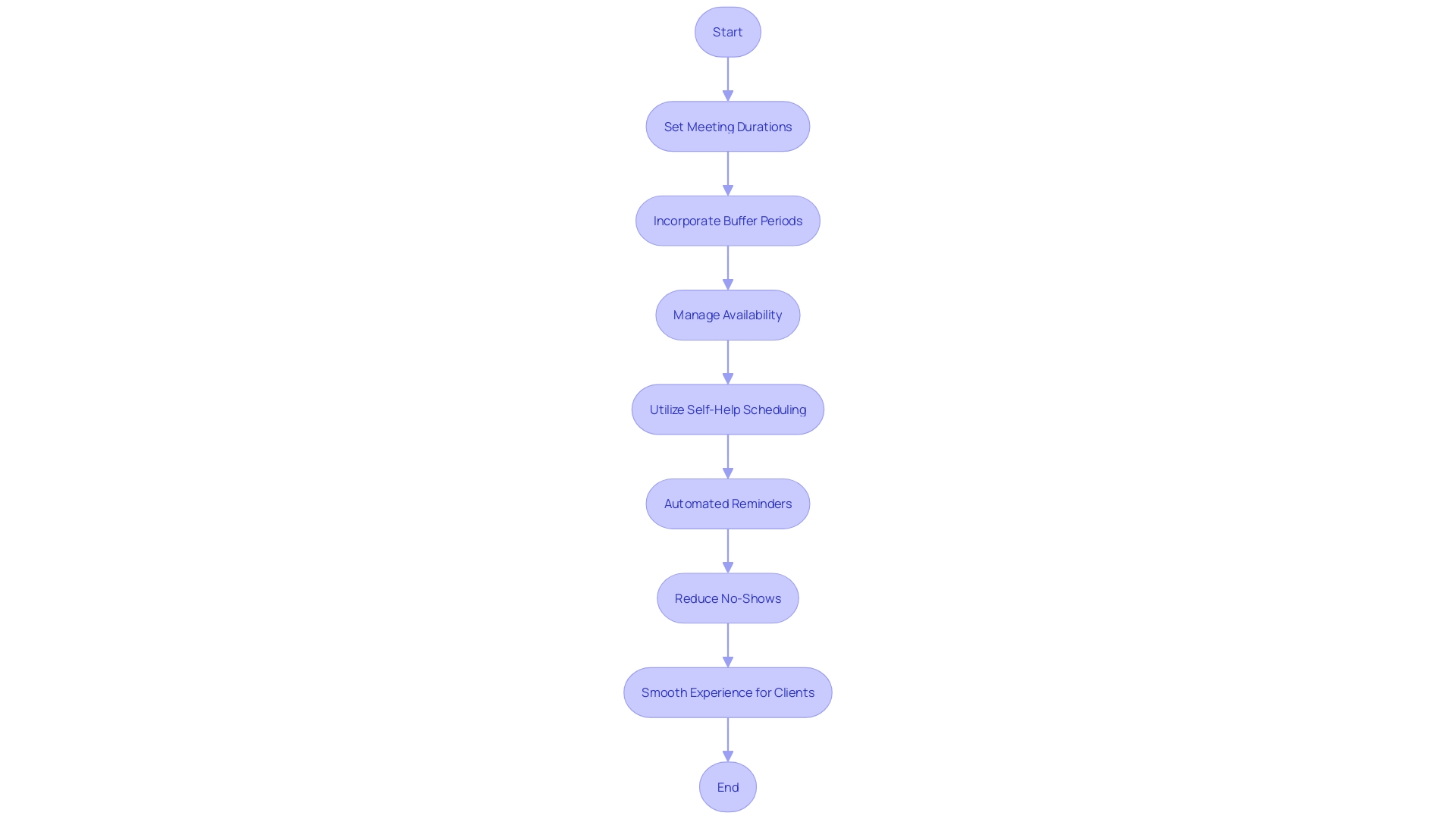
Customer Database and Contact Management
Storing and accessing client information with ease is a game-changer in today’s customer-centric world. This enables businesses not only to manage appointments efficiently but also to tailor services to individual needs. In the competitive environment, companies such as Lex Machina, who are handling large quantities of court records, have recognized the significance of strong data management solutions. After encountering difficulties with their database, they recognized the need for a robust mechanism to handle various customer demands. Similarly, the shift in the insurance industry, as seen with CTF Life, underscores the need for up-to-date and holistic customer views. It’s essential for offering customized services and for agents to quickly access customer information without the burden of outdated technology.
On the front line of customer interactions, a well-maintained customer database aids in understanding the nuances of customer service experiences that go beyond mere call sentiment. As described in the scenario where positive call sentiment didn’t result in a positive customer experience, it’s clear that a more intricate comprehension of customer interactions is required—one that a comprehensive contact management platform can offer.
From a broader perspective, contact management is essential for more than just individual customer interactions; it informs strategic decisions and can drive company growth. When information is systematically captured and maintained, it prevents the pitfalls of outdated data, which can lead to reduced customer satisfaction. Businesses of all sizes, from micro to enterprise, can benefit from the systematic approach to contact management. In the end, incorporating an online booking system that seamlessly connects with a strong contact management system can greatly improve the convenience for customers and the effectiveness for enterprises.
Reporting and Analytics
Utilizing advanced reporting and analytics is akin to having a high-powered microscope for your business’s scheduling. It’s not just about tracking who’s coming in and out; it’s a strategic tool that digs deep into your appointment metrics, unearthing trends and guiding you with clear, data-driven insights. Imagine being able to pinpoint your peak booking times, understanding client behavior, and tailoring your services to maximize efficiency and satisfaction. It’s similar to the methods utilized in enterprise resource planning (ERP) and customer relationship management (CRM), which have transformed data management in the corporate world. These systems collect immense volumes of data, storing them in centralized databases or cloud-based platforms, and transform them into actionable strategies to boost productivity and streamline operations. In the realm of online scheduling, this means you can optimize workflows, automate tasks, and elevate your service to new heights. With every click and scheduling, you’re not just filling slots; you’re crafting a smarter, more responsive organizational structure. Think of it as your operational crystal ball, giving you the foresight to stay steps ahead of the curve.
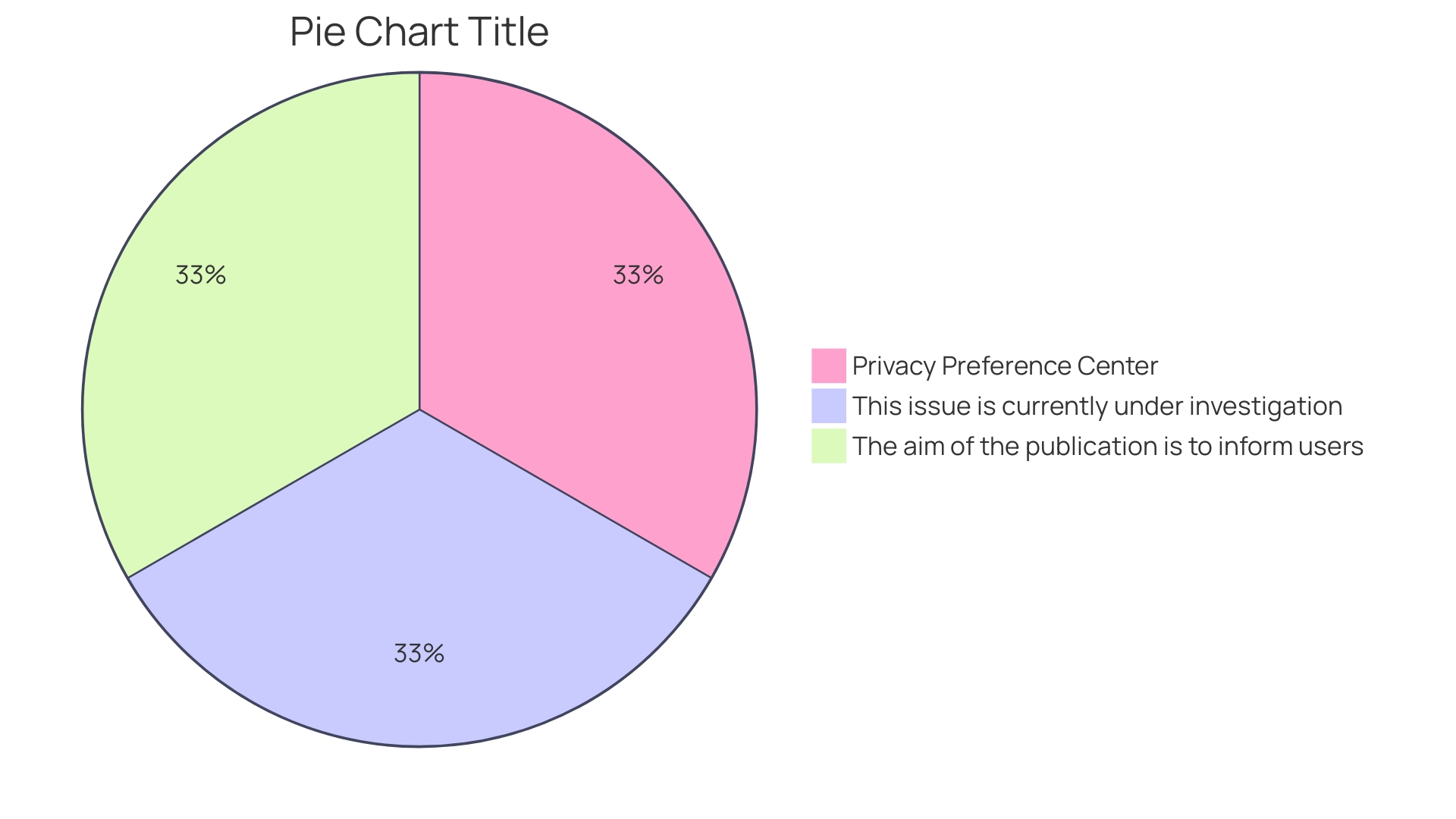
Integration with Other Business Tools
Combining free appointment booking software and apps with other business tools, such as CRM platforms or email marketing platforms, can generate a synergy that not only enhances your workflow but also magnifies the effect of your operational efforts. With data synchronization and task automation, you unlock a realm of possibilities, optimizing time management and propelling productivity to new heights.
For instance, consider the journey of Delivery Hero, a global leader in local delivery, who grappled with the challenge of managing over 53,000 employees across 70 countries. They faced a substantial hurdle with frequent account lockouts, leading to around 800 monthly IT requests which took an average of 35 minutes to resolve per case. Not only did this situation cripple employee work time, but it also placed an unnecessary burden on their IT resources. By integrating their processes and automating the recovery procedure, they streamlined operations, minimizing downtime and enhancing overall efficiency.
Healthcare organizations are no strangers to the pressures of data management and the necessity for automation. The story of a large physician organization bogged down by manual reporting processes serves as a compelling case. They required a full-time team just to produce a key management report weekly. By integrating their systems and embracing automation, they eliminated the cumbersome manual process, thereby freeing up valuable staff time for more critical tasks.
Small businesses, too, stand to benefit immensely from the integration of online scheduling software for managing their business meetings. According to Small Business Trends, these integrations greatly decrease the hands-on effort required in handling scheduled meetings, which consequently lessens mistakes and optimizes time effectiveness. Visualize converting what was previously a time-consuming activity into a efficient procedure that not only saves time but also improves the customer experience, providing them with the flexibility to schedule meetings anytime, anywhere.
These examples underscore the transformative power of integrating scheduling software with other business tools, enabling organizations of all sizes to navigate the complexities of today’s fast-paced business environment with greater agility and foresight.
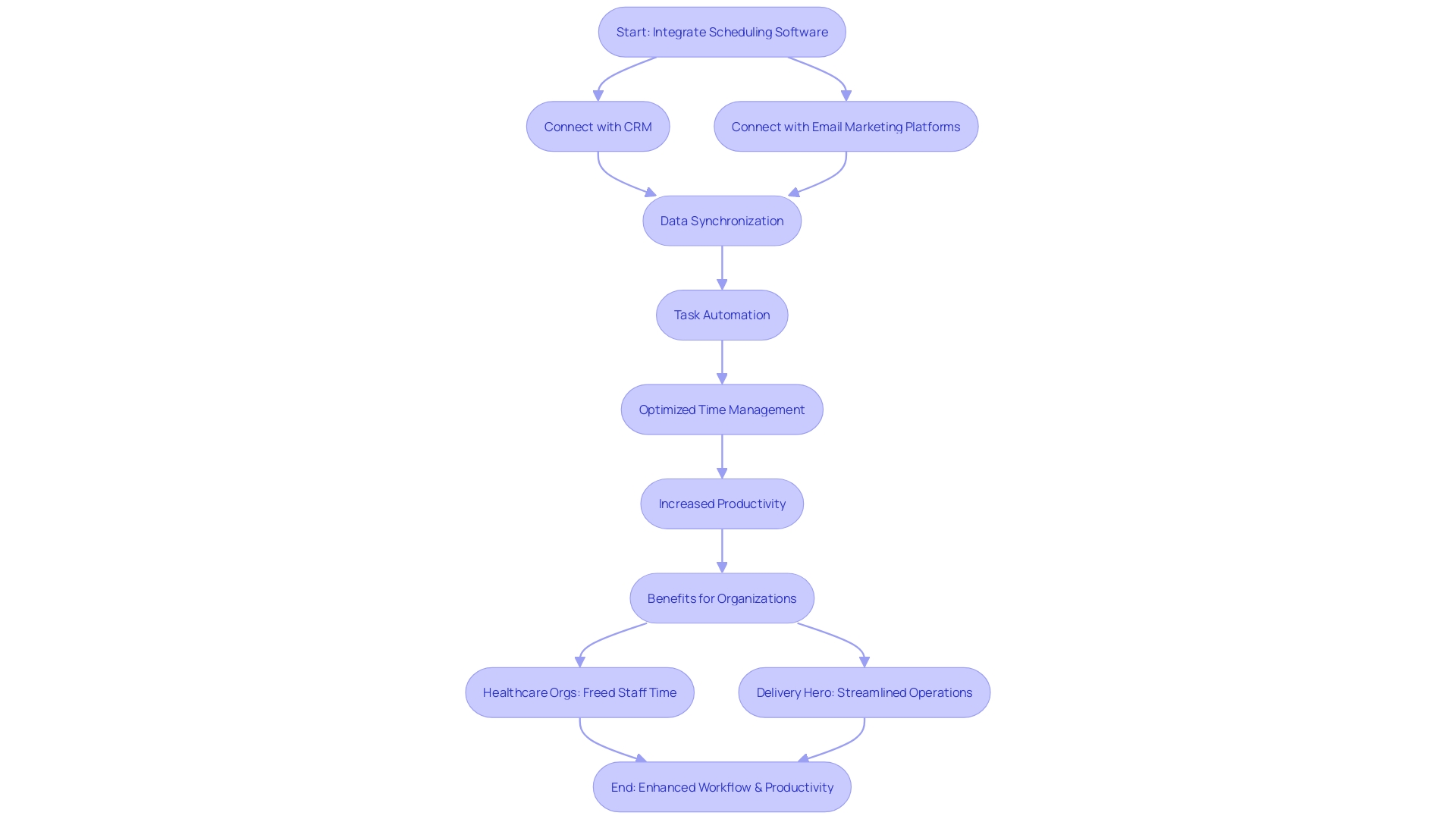
Mobile Accessibility
Harnessing the power of mobile technology is more than a convenience—it’s a game-changer for busy individuals who need to keep their schedules tight and their plans flexible. Given that almost every American possesses a mobile phone, and a majority have smartphones, the ability to handle scheduling on these devices is not just a benefit; it has become an essential tool for staying organized amidst the hectic nature of daily obligations.
Picture the convenience of modifying your day when you can quickly manage schedule alterations with a few taps on your phone, whether you’re in transit, between meetings, or even while enjoying a coffee break. Echoing the sentiments of industry experts, mobile accessibility shakes off the constraints of traditional scheduling, which often involves time-consuming calls or being tethered to a desk. Instead, it gives you the agility to respond to the unexpected turns of your day with confidence and poise.
Consider the example of Benefit Cosmetics, which has transformed the beauty industry’s service model by simplifying the management of scheduling on WhatsApp. This change reflects a wider pattern where businesses are embracing mobile-friendly solutions to provide their customers the ease of altering or canceling scheduled meetings without interrupting their hectic schedules or the continuity of in-person services.
The statistics are telling: Americans check their phones 144 times per day on average, and the term ‘mobile phone addict’ resonates with over half the population. This level of engagement with mobile devices underscores the importance of software that supports on-the-go accessibility. It’s not just about staying connected; it’s about enriching the quality of life through technology that understands the pace and challenges of modern living.
By embracing mobile planning tools, you’re not just keeping up with the times; you’re setting yourself up for a more responsive, dynamic, and ultimately successful management of your personal and professional agenda.
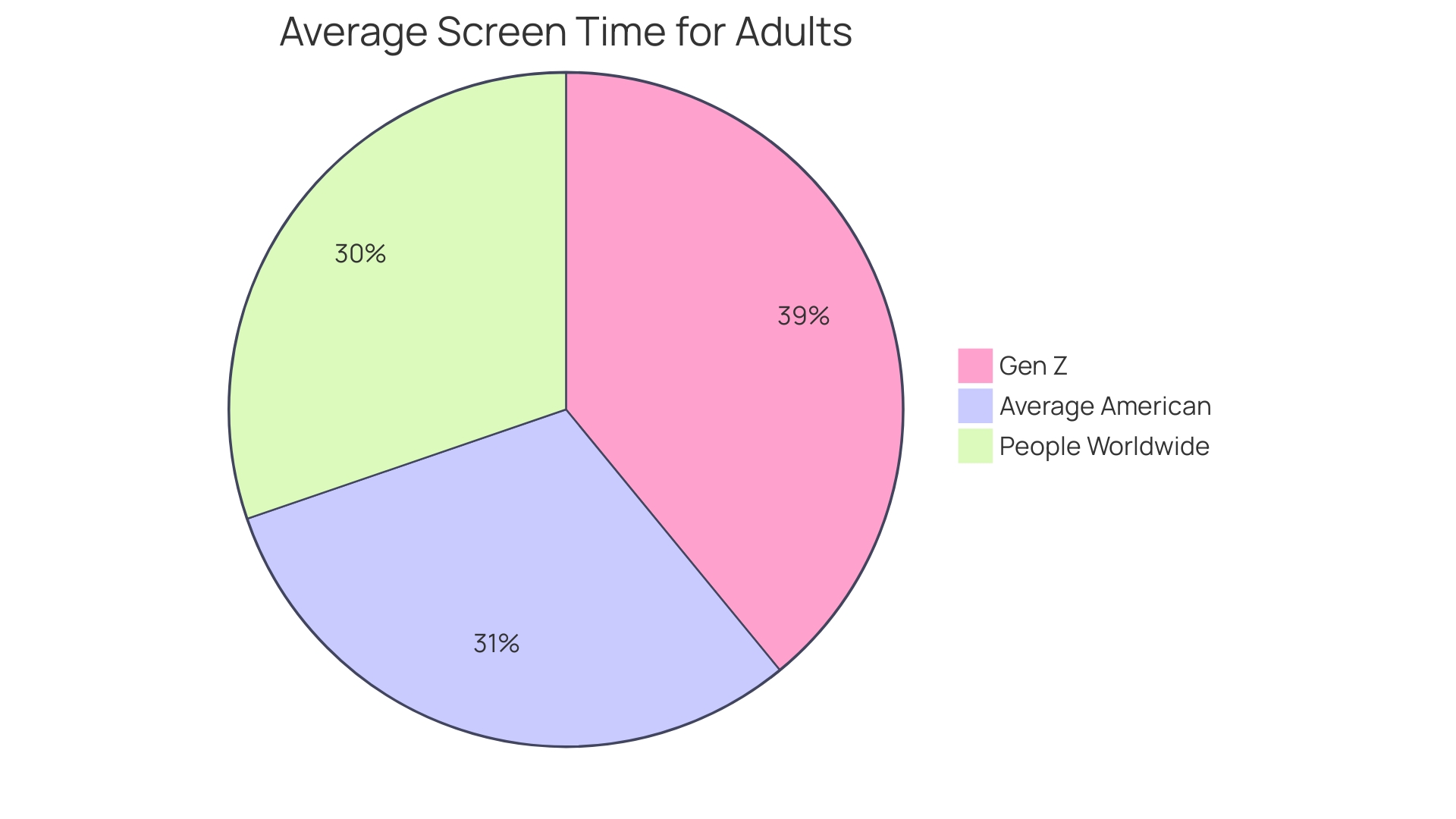
Best Practices for Implementing Appointment Scheduling Software
To maximize the full potential of scheduling software, it’s wise to adopt strategies that leverage its capabilities to the fullest. For example, embracing automation can significantly reduce the time spent on scheduling and modifying appointments. This not only saves precious time but also minimizes errors, allowing you and your team to concentrate on the core aspects of your business.
A prime example of this in action is Creekside Family Practice, which utilizes healow Open Access for hassle-free booking. Patients can easily select their provider, type of meeting, and time slot without the back-and-forth usually linked to scheduling.
Furthermore, incorporating automated text notifications for scheduled meetings can be a game-changer. It’s a straightforward yet efficient method to remind customers of their upcoming meetings, reducing no-shows and assisting in maintaining a seamless schedule.
According to Small Business Trends, 20 various online apps providing the advantages demonstrate the effectiveness and customer contentment associated with utilizing such software. Actually, certain healthcare organizations state that despite 70% of patients trying to book appointments online, the intricacy of their processes frequently directs them to contact centers. Nevertheless, through AI progress, even the most intricate organizing assignments can be simplified, demonstrating the potential of technology in reshaping the management of meetings.
By unifying all patient, provider, and practice data into a single system and developing a tailored AI algorithm, businesses can optimize their scheduling process. This isn’t just a theoretical suggestion; it’s a data-backed approach that can lead to more personalized care coordination and a smoother appointment booking experience.
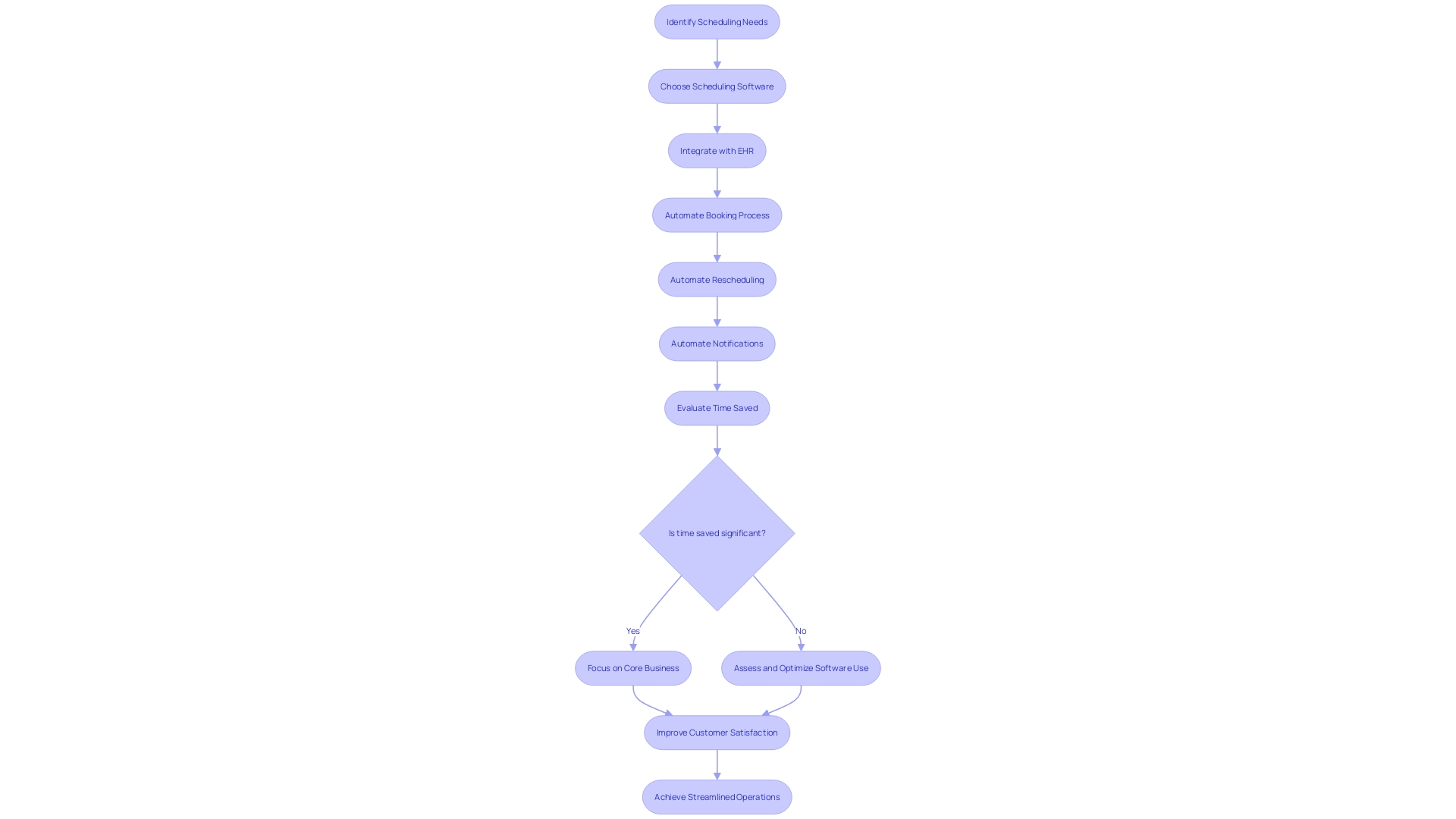
Conclusion
Appointment scheduling software has revolutionized the way businesses and healthcare providers manage their schedules. These tools automate the booking process, saving time and allowing professionals to focus on their core responsibilities. Small businesses can leverage scheduling solutions to improve operational efficiency and free up time for growth and customer service.
In the healthcare sector, patient expectations have shifted towards convenience and transparency. Platforms like Artera ScheduleCare enhance patient satisfaction and streamline front office operations by offering online and mobile appointment booking options. The integration of appointment confirmation texts reduces no-shows and ensures a seamless user experience.
Adopting appointment scheduling software is a strategic move to foster customer convenience, improve service access, and enhance efficiency. It’s not just a trend but a digital transformation that promises operational excellence. By automating the booking process, businesses save time and minimize errors.
AI integration streamlines scheduling, ensuring a match between patient needs and provider availability.
Integrating scheduling software with other tools optimizes time management and enhances productivity. Mobile accessibility allows individuals to manage appointments on the go, catering to the fast-paced nature of modern life. Best practices include embracing automation and utilizing automated text reminders for appointments.
In conclusion, appointment scheduling software is a game-changer. It streamlines operations, enhances customer satisfaction, and contributes to operational excellence. By adopting these tools, businesses save time, improve efficiency, and provide a seamless and convenient experience for their clients.
It’s a strategic move that aligns with the evolving expectations of customers and the digital transformation of industries.
Experience the convenience of online and mobile appointment booking with Artera ScheduleCare!
